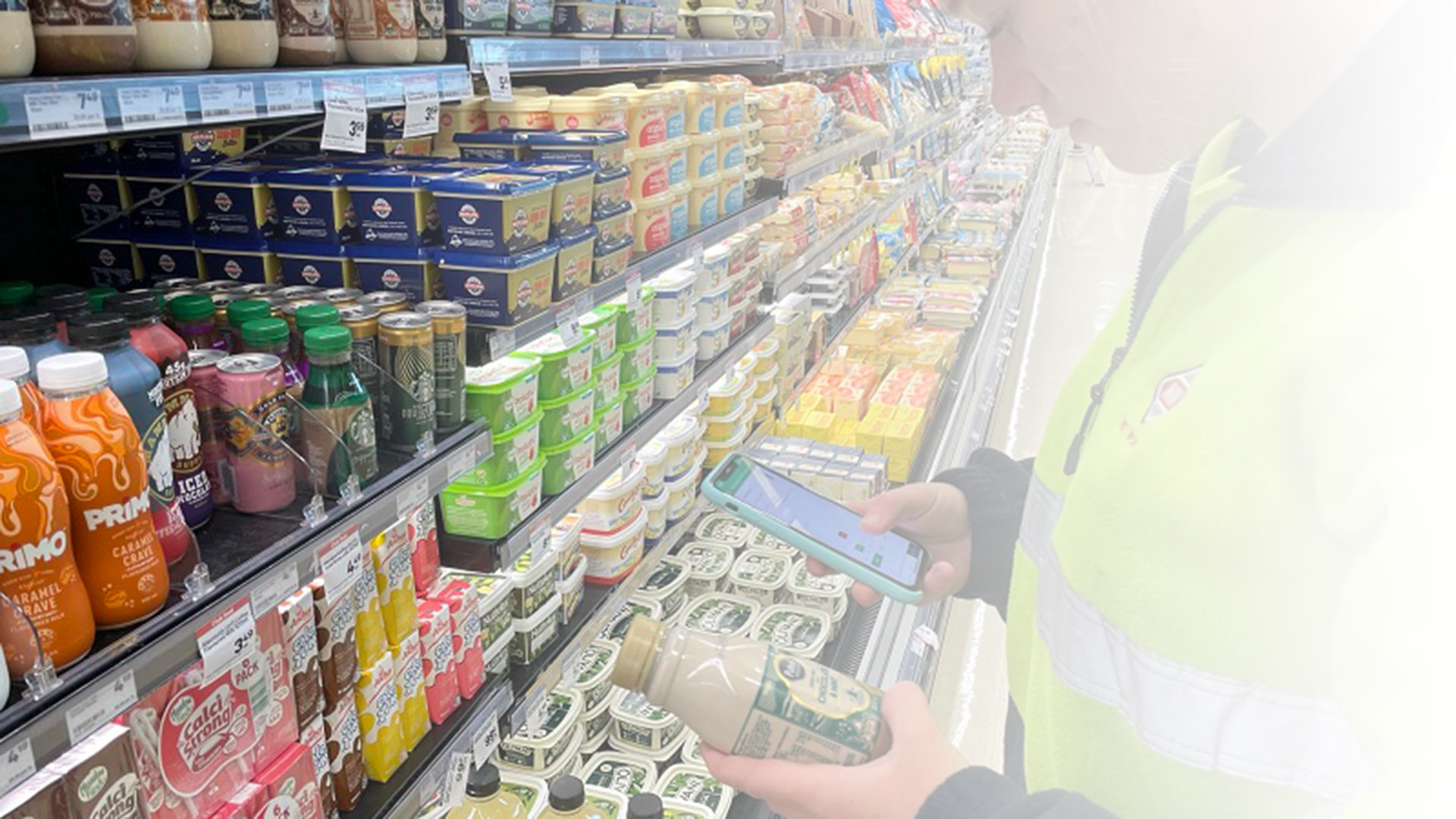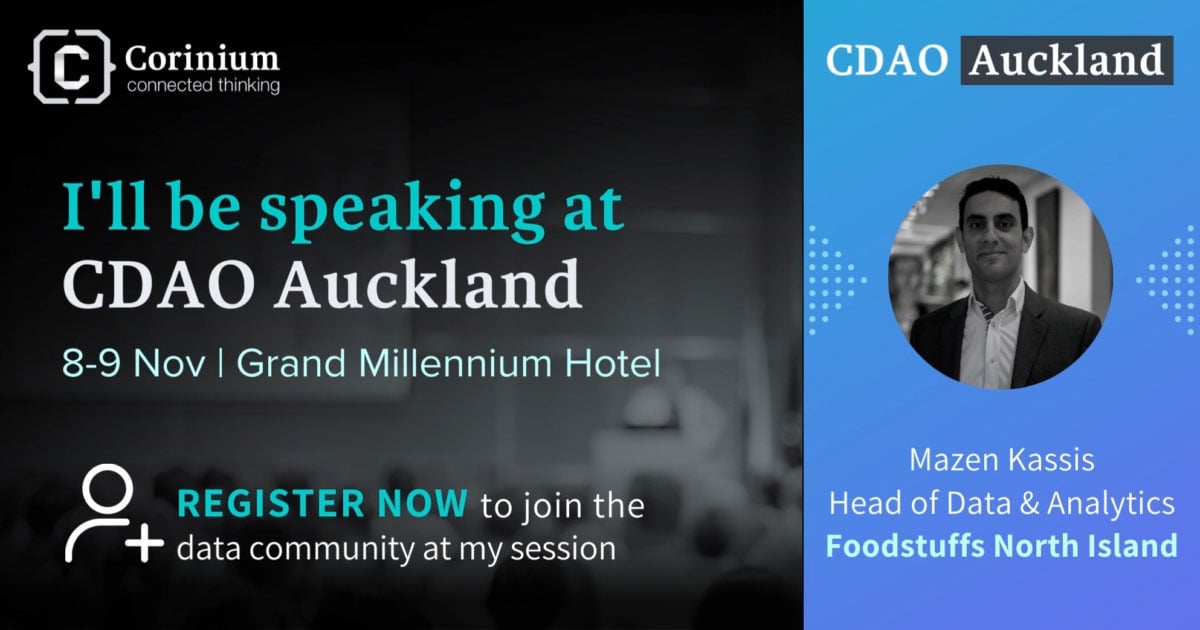Feeding Data to Empower Decision Making and Sustainability: Foodstuffs

Ahead of their speaking engagements at CDAO Auckland in November, Mazen Kassis (Foodstuffs North Island Head of Data & Analytics) and Sandy Botterill (Foodstuffs NZ, Head of ESG), discuss how data fits into the Foodstuffs’ missions and its approach to Environmental Social Governance
Many companies seek to be customer-driven, and delivering on that aspiration can be supported and enabled via the power of data. By tapping into data, businesses can better understand customer preferences, anticipate needs, and refine their service offerings.
This concept is well understood by the data leadership team at Foodstuffs North Island, a 100% New Zealand owned co-operative, with 323 owner operated stores in communities across Te Ika-a-Māui operating under the Four Square, New World, PAK’nSAVE, and Gilmours brands.
With 2.7 million customer visits in its stores and online every week and 24,000 Foodies across the North Island, Foodstuffs plays a big role in Kiwis' lives.
With Foodstuffs North Island’s stated goal of becoming one of the most customer-driven retailers in the world, Mazen Kassis is focused on technology, people and culture to get the job done.
“In my role I am focused on ensuring we have the right toolsets, that we hire, retain and train people with the required skillsets and that we shift people’s mindsets. These elements are key to us and our 24,000-strong Foodies whānau keeping our stores stocked with the essentials,” Kassis says.
While the Head of Data & Analytics role is a relatively new one in Foodstuffs’ 101-year history, Kassis says that data permeates every part of the co-operative's strategy, providing the means to do things better than they have been done before, across several key areas.
“Before taking an action, choices must be made – which action is best and why? At their core, data and analytics are about helping people and systems make better decisions, so, for me, they are critical enablers,” Kassis says.
“I started my Foodies story four years ago, and to the best of my knowledge, I was the first person hired with the words “data” and “analytics” in my job title. Since then, I’ve been able to introduce various data disciplines into the organisation, from data engineering to data governance.
“Today, we’re on the cusp of bringing to life a data and analytics ecosystem that has the potential to revolutionise the way our co-op works, by putting the power of data into the hands of the people that need it, when they require it.”
Approach to ESG and Working with Data
With environmental social governance (ESG) becoming an increasingly important priority for many organisations, and one that also touches data and customers in a big way, Foodstuffs has made ESG a priority.
Head of ESG, Sandy Botterill leads the Foodstuffs strategy across both of the Foodstuffs North Island and Foodstuffs South Island co-operatives. It has been Botterill’s focus since she joined the cooperative in 2022.
“While our ESG team and approach has evolved a lot over the past few years, the constant has been our focus on being HereforNZ, our ESG strategy, which is really at the foundation of how we operate,” she says.
“HereforNZ is a series of commitments we’ve made to ensuring New Zealanders have access to healthy and affordable food, our people have meaningful and safe work, that we look after the communities we’re in, and that we continue to work towards being leaders in sustainability.
“To support our HereforNZ commitments, data and ESG go hand in hand, particularly when we’re working to shift from retrospective reporting to data led insights that inform the organisation and its’ decision making.”
Kassis says the data team has a fantastic working relationship with the ESG team.
“We are increasingly connecting on many different levels, whether it be empowering Sandy and her team with the data to enhance their evidence-based decisions or the ESG team working with us to lift the understanding and culture around data within Foodstuffs and externally,” he says.
“My sense is that the connections are blossoming, and our best work is ahead of us.”
Barriers to Uplifting Data Capability
As more and more organisations in New Zealand look to get more value out of data and digital initiatives, Kassis says one of the major barriers can be misaligned mindsets.
“Perhaps the most significant shift senior stakeholders in an organisation can make is to ask a simple question of anyone making a case to them: what does the data tell us? Such a basic question, if asked systematically, would likely lead to more (and better) use of data at all levels of an organisation.
Kassis also adds that another challenge or consideration that often arises is the importance of connecting business outcomes to the efforts of data and analytics.
“It’s often too easy to miss or ignore the business value that’s created or enabled by data teams, particularly if the relationship is indirect where others outside the team end up creating the value. Data teams have a special responsibility to make the connections between their efforts and business value clearly understood to not be overlooked or taken for granted,” he says.
“Making those connections visible and getting them front of mind for key stakeholders, on an ongoing basis, is very important to build trust and enhance support for future data and analytics endeavours.”
Learn more about data journeys at Foodstuffs North Island and other New Zealand organisations at CDAO Auckland, taking place 8-9 November. Check out the agenda and register to attend by clicking this link.




